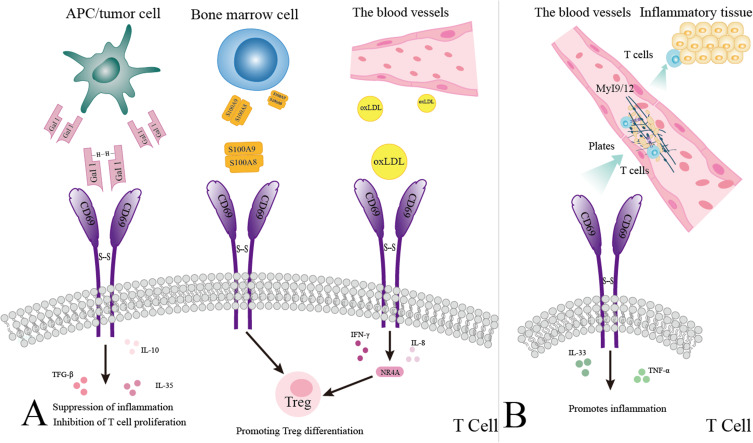Figure 1.
T cell immune responses mediated by CD69 binding to ligands. (A). Binding of CD69 to its ligand causes negative immune regulation. CD69 expressed on T cells binds to Gal1/12 expressed by APC or a tumor cell, triggering GAL1/12-mediated anti-inflammatory responses and promoting the production of anti-inflammatory cytokines, such as IL-10, IL-35, and TGF-β, which inhibit T cell proliferation (Left). The S100AB/S100A9 complex expressed by bone marrow cells binds to CD69 on T cells and promote Treg differentiation (Middle). oxLDL, which is modified in vascular endothelial cells, binds to CD69 on T cells, increasing the production of proinflammatory cytokines such as IL-8 and IFN-γ and promoting the transcription of NR4A and Treg differentiation (Right). (B). CD69 promotes inflammation after binding to its ligand. Platelets produce Myl9/12 to form the Myl9/12 network on blood vessels. The network then serves as a platform for the migration of CD69 antigen-specific T cells into inflamed tissues and thereby promotes inflammatory responses.

